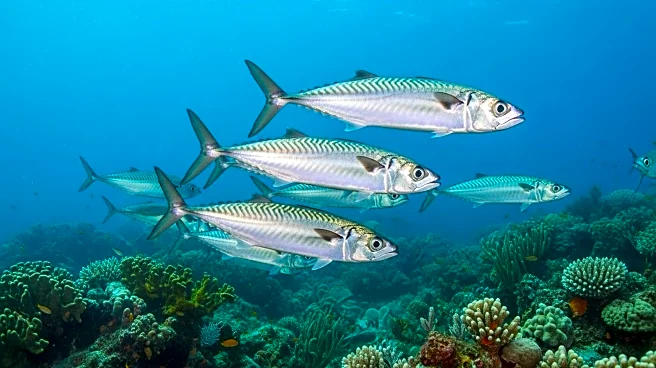What's Happening?
The International Council for Exploration of the Sea (Ices) has recommended a significant reduction in mackerel fishing in the north-east Atlantic to prevent the collapse of fish stocks. Ices advises setting a catch limit of 174,357 tonnes for 2026, a drastic cut from the estimated 755,143 tonnes expected to be caught by the end of 2025. Despite scientific advice, annual catch limits agreed between the EU and coastal countries, including the UK and Norway, have consistently exceeded recommended levels. Conservationists warn that enforcement of management measures is insufficient, and a unified plan is lacking to prevent overfishing.
Why It's Important?
The potential collapse of mackerel stocks poses a significant threat to the fishing industry and the communities dependent on it. Overfishing not only endangers the species but also disrupts marine ecosystems and biodiversity. The situation calls for urgent action from governments to adhere to scientific recommendations and implement sustainable fishing practices. Failure to do so could lead to long-term economic and environmental consequences, affecting food security and livelihoods in the region.
What's Next?
Governments and stakeholders in the fishing industry may need to negotiate new quotas and management plans that align with scientific advice to ensure the sustainability of mackerel stocks. Increased collaboration and enforcement of fishing regulations are essential to prevent further depletion. The Marine Stewardship Council and other conservation groups are likely to continue advocating for sustainable alternatives and stricter policies to protect marine life.
Beyond the Headlines
The issue highlights the broader challenges of balancing economic interests with environmental conservation. It raises ethical questions about resource management and the responsibility of nations to protect global biodiversity. The situation may prompt discussions on international cooperation and the development of more effective conservation strategies.










